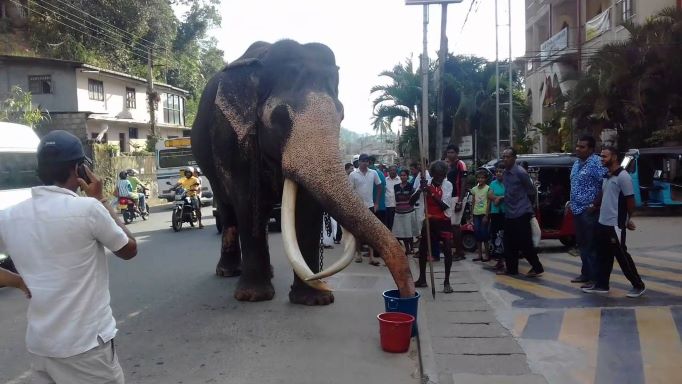Sri Lanka dealt a spiritual blow
As death of 68-year-old revered elephant adds to tourism-dependent nation’s woes
By Mark Footer
What is the opposite of serendipity? Misfortune? Rotten luck?
Either could well describe the situation currently faced by Sri Lanka – the island once known as Serendip (the Persian name that gives us the English word meaning “the phenomenon of discovering valuable or agreeable things not sought for”).
Still recovering from a 25-year civil war that ended in 2009, the South Asian country was again buffeted by violence in April 2019, when suicide bombers targeted three churches and three luxury hotels, killing nearly 280 people. Then came COVID-19.
With mounting debts to pay from post-war reconstruction, Sri Lanka must now also contend with the repercussions of Russia’s invasion of Ukraine as well as the economic fallout from the coronavirus pandemic. And as if all that were not enough, Sri Lankans are also reeling from the spiritual blow of losing Nadungamuwa Raja.
The elephant, which bore the main casket of the Tooth Relic of The Buddha in the annual procession of Esala (part of the 10-day Festival of the Tooth), in Kandy, died on March 7, at the age of 68 (or possibly 69).
“It is highly unlikely that there could have been any Sri Lankan who did not love this gentle giant for his majesty and tranquillity,” according to an article on an online news website. “As in ancient traditions, it is only a male tusker of remarkable physique that is eligible for bearing the casket of the Tooth Relic.”
Nadungamuwa Raja was reportedly the tallest domesticated elephant in Asia and one of the few from the continent to actually have tusks: a fine creature to have borne what is believed to be The Buddha’s left canine.
“It is this majesty of this beast which prompted many Sri Lankans, especially the devout Buddhists, to place Nadungamuwa Raja up on a pedestal of sanctitude.”
The much-loved tusker leaves behind a tourism-dependent nation in turmoil. Although not the most pressing problem in a country where a foreign exchange crisis has led to fuel shortages, lengthy daily blackouts and the worst inflation in Asia (already at 15%), the inability of tourists from eastern Europe to travel is nevertheless a huge concern.
“About 30% of visitors this year were from Russia, Ukraine, Poland and Belarus, and the war is threatening to turn off that tap,” reports Bloomberg.
The newswire explains that “Sri Lanka earned US$3.6 billion from tourism in 2019 before the pandemic slashed that to less than a fifth two years later, official data show.”
And the tourism authorities have been doing their level best to bring back that cash.
“Hello again” beams the So Sri Lanka website, above the latest COVID-19 requirements for arrivals: fully vaccinated tourists are exempt from quarantine and, from March 1, from pre-departure COVID-19 PCR/Rapid Antigen tests. Partially vaccinated arrivals may “stay in a ‘Flexible bio-bubble’ with all facilities of the hotels made available and ability to visit approved tourist sites”.
Even those who haven’t been jabbed at all are welcome: “‘Not-Vaccinated’ travellers can still have a great time under the protection of the Tourism Bio Bubble for a duration of 7 nights/8 days.”
So keen is Sri Lanka for visitors to return, reports Xinhua, that tourism is to be at the front of the queue when the island’s dwindling supplies of fuel are doled out.
“Tourism Minister Prasanna Ranatunga has informed the Energy Ministry to prioritize the tourism sector when distributing gas and fuel as the country faced a shortage in both commodities due to a foreign exchange crisis. Minister Ranatunga held discussions […] so that the tourism sector could continue operations without any setbacks,” reports the Chinese news agency, which states that nearly 235,000 tourists have arrived in the country so far this year and almost 50,000 are currently in Sri Lanka.
“During discussions, Ranatunga pointed out that it was in the national interest to provide assistance to the tourism industry as the sector was one of the largest foreign exchange earners.”
You wouldn’t see the familiar trunk of Nadungamuwa Raja if you were to pay a visit to the Festival of the Tooth this August (tentative dates are August 14 to 24), but Sri Lanka would sure like to see you.
-This article was originally featured on scmp.com


